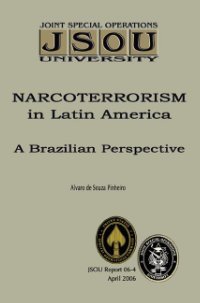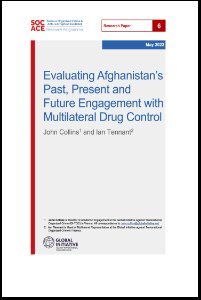By Alvaro de Souza Pinheiro
Narcoterrorism in Latin America: A Brazilian Perspective builds a case for giving greater attention to the narcoterrorism threat. General Alvaro suggests that security conditions in Colombia and the Tri-Border Area (TBA), where Argentina, Brazil and Paraguay meet, deserve the immediate attention of security officials of the Hemisphere's more capable countries. In this paper, General Alvaro provides a review of Colombia's security situation-the history and current situation-and details his thoughts about the United States' support of the government of Colombian President Alvaro Uribe Velez.
Hurlburt Field, FL: Joint Special Operations University, 2006. 96p.



